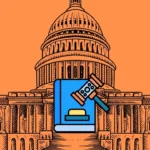
According to the global capital markets commentary The Kobeissi Letter, the Federal Reserve will unlikely initiate another 50 basis point interest rate cut this year. The commentary rather believes that the possibility of no cuts in November is rising. The Kobeissi Letter also mentioned that the Fed’s previous rate cut in September was too aggressive.
The Federal Reserve decided on a 50 basis point interest rate cut on September 18 during the Federal Open Market Committee Meeting. This was the Fed’s first rate cut in four years, the last being in 2020 during the COVID-19 pandemic.
The Fed believed an aggressive approach would be crucial in achieving its inflation and employment goals. The committee was also confident that the Fed was nearing the 2% inflation rate.
The commentary still pointed out the seeming failures since the interest cuts in September. The Kobeissi Letter highlighted the slow drop in the consumer price index (CPI) in September to 2.4%, compared to the expected 2.3%. However, core CPI inflation rose last month to 3.3%, above the 3.2% expectation. Kobeissi outlined that September was the first time since March last year that core CPI inflation rose.
Some economists believe that the Fed cuts rates when they believe the economy will turn for the worse. However, in the past, inflation rates have been lower in some instances while others have been significantly higher.
Some Fed officials expect more rate cuts
The president of the Chicago Federal Reserve Bank, Austan Goolsbee, believes that the Fed should continue the same rate cut path it took in September. Goolsbee mentioned that he expected the Fed to continue with interest rate cuts over the next year or year and a half. The president of the Chicago Fed Reserve Bank noted that inflation rates were nearing the expected 2%.
“The overall trend over 12 to 18 months is clearly that inflation has come down a lot and the job market has cooled to a level which is around where we think full employment is.”
During a CNBC interview, Austan said he was not worried about the September CPI inflation report. The president of the Chicago Fed Reserve Bank further insisted that the U.S. central bank had shifted its focus beyond price pressures only.
John Williams, the president of the New York Fed Reserve Bank, shared similar views with Austan about continued interest rate cuts in the future. Williams insisted that shifting the views on monetary policy to a more neutral position would be appropriate.
Fed meeting minutes share The Kobeissi Letter’s concerns
Minutes from the Federal Open Market Committee meeting highlighted that some Fed officials were against the 50 basis point rate cut. The minutes mentioned that some officials would have preferred a 25 basis point rate cut, while others suggested that they would have supported the decision.
All officials agreed that reducing the interest rate cuts was appropriate for the economy. However, most officials still supported the aggressive approach to the rate reduction.
The 25 bps would contribute to the country’s ‘gradual normalization’ of monetary policies. On the other hand, few officials had hoped for a 75-basis-point interest rate cut. Some in the capital markets still speculate that the upcoming Fed cuts will be 25 basis points.











